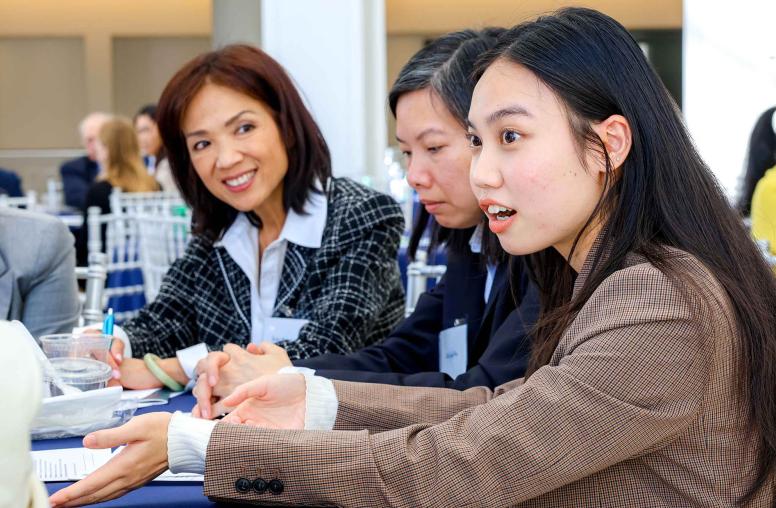Coordinates for Transformative Reconciliation
Reconciliation is the long-term process that helps conflict parties build trust, learn to live together cooperatively, and create a stable peace. But what makes reconciliation genuinely transformative? This report draws on a qualitative analysis of 20 prominent reconciliation processes and interviews with experts who guided them to identify the qualities that made the processes successful. The report‘s insights and recommendations can help governments, multilateral organizations, and nongovernmental actors develop more responsive and responsible reconciliation initiatives.

Summary
This report uses the metaphor of coordinates to examine “transformative reconciliation” processes—that is, processes that sustainably transform negative relationships shaped by conflict. Rather than present idealized notions of what reconciliation “should be,” the report develops pointers toward what concrete reconciliation processes look like when they succeed in transforming conflict-affected relationships at different, interconnected levels of society. These coordinates highlight qualities of reconciliation processes that are useful for guiding process development and sustained adaptation to address changing needs on the ground. The coordinates emerged from qualitative interviews with experts from 20 prominent reconciliation processes globally and comprise qualities of process, qualities of leadership, and signs of progress. Together, they form a basic framework that can be used strategically to develop effective reconciliation support. Importantly, the framework is not presented as definitive or exhaustive; rather, it assumes the dynamic nature of reconciliation processes that are at once imperfect, burdened with challenges, and reflective of varying degrees of success.
Despite obvious differences in context, the cases examined displayed similar qualities of process and leadership and similar signs of progress. Where and when these crosscutting qualities emerged, a more sustainable, inclusive, and impactful reconciliation became possible. For example, in processes that led to sustainable transformation of hostile and oppressive relationships, leaders were keenly aware of, spoke about, and sought to address relational harm inflicted upon individuals, communities, and society at large. Across the cases, effective leaders knew how to build sufficient trust to bring together adversaries and excluded groups, forge mutually agreeable pathways toward nonviolence, and develop strategies for the empowerment of all stakeholder groups.
Transformative reconciliation, it appears, also allows for a variety of complementary processes to occur concurrently at multiple levels of society and throughout different phases of conflict. Such processes require sustained reflection and engagement in order to constantly adapt practice and reshape goals as processes develop and demand change. Moreover, given that reconciliation processes often emerge organically, even in the heart of conflict, external actors need to seek out and support initiatives that are already present on the ground rather than simply attempting to start new initiatives. The findings presented here offer precisely the kind of guidance needed to distinguish between promising and less promising on-the-ground opportunities for transformative reconciliation.
Ultimately, these findings and recommendations can help governments, multilateral organizations, and nongovernmental actors to overcome existing disconnections between policies, funding, practice, and beneficiaries and to develop more responsive and responsible reconciliation initiatives.
About the Report
Commissioned by the United States Institute of Peace’s Inclusive Peace Processes and Reconciliation program, this report presents a tentative framework for planning and implementing reconciliation initiatives. The framework was formulated based on qualitative interviews with experts with long-standing, firsthand experience in 20 reconciliation processes globally. The findings were corroborated with reference to existing literature within the peacebuilding field.
About the Authors
Fanie du Toit is a former executive director of the Institute for Justice and Reconciliation and has supported reconciliation efforts in Africa, the Middle East, and Southeast Asia. Angelina Mendes is a doctoral candidate in conflict analysis and resolution at the Jimmy and Rosalynn Carter School for Peace and Conflict Resolution at George Mason University and a research fellow at the Mary Hoch Center for Reconciliation.



